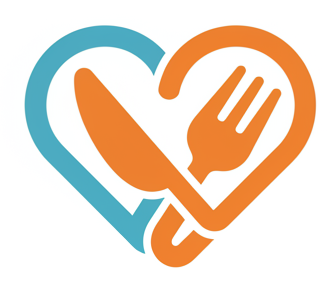Learning to say no is key for setting boundaries and keeping a balance between work and life. It’s tough, but it’s crucial for taking care of ourselves. Saying no helps us focus on what’s important, improving our mental health and productivity. It also helps us build stronger relationships.

Saying no is very important. It helps us avoid burnout by focusing on what’s truly important. By saying no, we can say yes to things that really matter. This way, we set boundaries that support our goals and values.
The benefits of saying no are huge. It can greatly improve our quality of life. Setting boundaries and saying no is hard, but it’s essential for healthy relationships and achieving our goals.
Key Takeaways
- Learning to say no is essential for setting boundaries and maintaining a healthy work-life balance
- Saying no can improve mental health and increase productivity
- Setting boundaries is vital in both personal and professional life
- The benefits of saying no include increased focus and better relationships
- Saying no allows us to say yes to what’s truly important
Understanding Why Saying No Is Challenging
Saying no is hard for many. It’s key to know why. Fear of disappointing others is a big reason. This fear makes us want to please everyone, even if it’s hard.
Healthy communication helps us get past these fears. By talking openly about what we need, we keep our relationships strong. Taking care of ourselves also helps. It lets us say no when we need to.
Cultural and Social Conditioning
Our culture values being nice and agreeable. This makes it hard to say no. We might think saying no will make others dislike us.
Fear of Disappointing Others
Feeling bad about disappointing others is scary. It makes us take on too much. This can make us feel burned out and unhappy with ourselves.
People-Pleasing Tendencies
Wanting to please everyone can stop us from saying no. It’s important to put our own needs first. Learning to say no in a kind way helps us take care of ourselves and our relationships.
The Psychology Behind the Need to Say Yes
Understanding why we often say yes is key to better decision-making. The need for approval, fear of being rejected, and wanting control can make us too eager to please. This can stop us from setting boundaries and focusing on our own needs.
This urge to say yes might seem like a way to feel powerful. But, true power comes from making choices that reflect our values and goals. By understanding what drives us to say yes, we can start to break free from always trying to please everyone. This helps us make more balanced decision-making choices.
Some main reasons we might say yes too much include:
- Fear of rejection and social exclusion
- Desire for approval and validation
- Need for control and security
By facing these reasons, we can gain a deeper understanding of our motivations. This helps us make choices that put our needs and personal empowerment first.
The Importance of Saying No in Modern Life
Saying no is key to a healthy work-life balance and reaching personal and professional goals. It helps set boundaries and focus on what’s important. This leads to more productivity and less stress. Good communication is vital for setting these boundaries, keeping relationships strong and respectful.
In work, saying no helps you stay focused and efficient. It prevents you from taking on too much, ensuring quality work and a good reputation. In personal life, saying no builds trust and deeper connections. It lets you focus on your own needs, making relationships more fulfilling.
- Increased productivity and efficiency
- Improved work-life balance
- Stronger, more respectful relationships
- Reduced stress and anxiety
By saying no regularly, you can see big improvements in your life. Setting boundaries and focusing on what’s important through good communication is crucial. It helps you achieve your goals in both work and personal life.
| Benefits of Saying No | Results |
|---|---|
| Increased Productivity | Improved focus and efficiency |
| Improved Work-Life Balance | Reduced stress and increased personal time |
| Stronger Relationships | Deeper connections and trust |
Health Consequences of Always Saying Yes
Always saying yes can lead to burnout, stress, and harm our mental and physical health. Not taking time for self-care and setting limits can overwhelm us. This can cause anxiety, depression, and even chronic illnesses.
It’s important to make good decision-making choices to keep a healthy balance between work and life. Saying no and focusing on our needs can lower stress and boost our well-being. Here are some key points to consider:
- Prioritize self-care activities, such as exercise, meditation, and spending time with loved ones
- Set clear boundaries and learn to say no without feeling guilty
- Practice good decision-making skills, such as weighing the pros and cons of a situation
By taking care of ourselves and making healthy choices, we can avoid burnout and stay healthy. Remember, saying no is not selfish. It’s crucial for our physical and mental health.

By focusing on self-care and making smart decision-making a habit, we can better our relationships, work more efficiently, and live a more fulfilling life. So, when you’re tempted to say yes to something that doesn’t fit your values or priorities, remember saying no is a powerful way to protect your health and well-being.
| Health Consequences | Self-Care Strategies |
|---|---|
| Burnout | Prioritize rest and relaxation |
| Stress | Practice meditation and deep breathing |
| Anxiety and Depression | Seek professional help and support |
Building Your No Muscle: Practical Techniques
Learning to say no is key to being assertive, communicating well, and feeling empowered. It helps you set limits, focus on what’s important, and keep relationships healthy. Start small and practice often to build this skill.
Start with easy situations, like saying no to something you don’t really want to do. As you get better, tackle bigger challenges. It’s also important to speak clearly and firmly when saying no.
Starting Small
- Begin with low-stakes situations, such as declining a non-essential commitment
- Practice saying no in everyday conversations, such as turning down a request for a favor
- Gradually move on to more significant situations, such as saying no to a major request or commitment
Using Gentle but Firm Language
When setting boundaries, use language that is both gentle and firm. This way, you keep relationships strong while looking out for yourself. Being clear and assertive helps build trust and respect.
Common Situations Where Saying No Is Essential
Saying no can be tough, but it’s key in many areas to keep relationships healthy and focus on your needs. Setting boundaries is important in both personal and work life. It stops you from taking on too much and lowers stress. At work, saying no to tight deadlines or too much work helps with decision-making and keeps your life balanced.
In personal life, saying no to things that drain you or go against your values is crucial for self-care. It’s also vital to think about what you want and need, not just what others want. By saying no to things you don’t need to do, you make time for things that make you happy.
Some common times when saying no is key include:
- When someone wants you to do too much work or take on too much responsibility
- When a friend or family member asks for money or emotional support you can’t give
- When you’re invited to a social event that doesn’t match your values or interests
By learning to say no in these cases, you can set boundaries, focus on your needs, and keep relationships healthy. Remember, saying no isn’t selfish. It’s about knowing your limits and what’s most important to you.
The Connection Between Saying No and Self-Worth
Saying no can boost self-esteem and confidence. It helps set boundaries and prioritize one’s needs. This builds a stronger sense of self-worth. It also leads to more personal empowerment as people become more confident in their choices.
Having a positive self-image is key for making good decision-making choices. When you feel good about yourself, you can better prioritize your needs. This means taking care of your physical, emotional, and mental health through self-care.
Here are some ways to build self-esteem and a positive self-image:
- Identifying and challenging negative self-talk
- Practicing self-compassion and self-forgiveness
- Setting realistic goals and celebrating achievements
By using these strategies, you can feel more confident and empowered. This can lead to a more fulfilling life.
| Strategy | Benefits |
|---|---|
| Practicing self-care | Improved mental and physical health |
| Setting boundaries | Increased confidence and self-esteem |
| Making healthy decisions | Greater sense of personal empowerment |
Handling Pushback When You Say No
When you say no, you might face pushback. This is where assertiveness is key. Being assertive means you stand firm but still respect others’ feelings. It’s a balance that’s important for good communication and setting boundaries.
To deal with pushback well, try these tips:
- Stay calm and composed, even when faced with resistance
- Repeat your reasons for saying no without feeling the need to justify it
- Offer other solutions if you can, to show you’re still willing to help
Saying no isn’t about being confrontational or aggressive. It’s about being clear and direct while still being respectful. Being assertive and setting clear boundaries helps you keep communication healthy and builds stronger, more respectful relationships.

With practice and patience, you can get better at handling pushback confidently and assertively. This leads to better boundary-setting and healthier relationships.
Creating a Support System for Boundary Setting
Having a strong support system is key for setting boundaries. It helps with self-care and personal empowerment. When you’re around people who value boundaries, making hard decision-making gets simpler. Your support system can include friends, family, or coworkers who share your values.
A support system keeps you on track and motivated to keep your boundaries. You can do this by checking in often, sharing stories, and offering advice. This way, you grow in self-care and personal empowerment, leading to better decision-making.
- Regular check-ins with accountability partners
- Seeking professional guidance from therapists or coaches
- Sharing experiences and offering support to one another
By adding these elements, you build a strong support system. It promotes self-care, personal empowerment, and smart decision-making.
| Support System Component | Benefits |
|---|---|
| Accountability Partners | Increased motivation, improved boundary setting |
| Professional Guidance | Expert advice, personalized support |
| Shared Experiences | Community building, emotional support |
The Long-Term Benefits of Mastering the Art of No
Learning to say no can change your life for the better. It leads to many benefits that last a long time. By setting boundaries and focusing on what’s important, you can grow in your career, improve your relationships, and boost your mental health.
Some key benefits of saying no include:
- Increased productivity and focus on important tasks
- Improved work-life balance and reduced stress
- Stronger, more meaningful relationships built on healthy communication
- Greater sense of self-worth and confidence
By making saying no a part of your daily life, you can see big improvements in your well-being. This happens when you set boundaries and put your own needs first. You’ll live a more balanced and fulfilling life. As you keep practicing healthy communication and setting boundaries, you’ll see benefits that last a long time. These benefits will touch many areas of your life, not just your relationships and career.
To show how saying no can impact your life, look at this table:
| Area of Life | Benefits of Saying No |
|---|---|
| Career | Increased productivity, improved work-life balance, and greater sense of accomplishment |
| Personal Relationships | Stronger, more meaningful relationships built on healthy communication and mutual respect |
| Mental Health | Reduced stress, improved self-worth, and increased confidence |
Conclusion: Embracing Your Right to Say No
Remember, you have the right to put your needs first. Learning to say no is a key part of self-care and empowerment. It can change your work, personal life, and how you feel about yourself.
Setting boundaries is brave. It keeps you healthy and strengthens your relationships. It also opens doors to new opportunities and success. Think of your time and energy as valuable. Choose to spend them on what’s important to you.
Saying no shows you value yourself. Keep moving forward, surrounded by people who support you. If you need help, ask for it. Trust yourself to handle life’s challenges with dignity and honesty.
Disclaimer: This article is for informational purposes only and does not constitute medical advice. Always consult a healthcare professional before starting a new exercise or wellness routine.
FAQ
Why is it important to say no?
Saying no helps set healthy boundaries. It boosts mental health and productivity. It also strengthens relationships by focusing on your needs and values.
What are the common challenges in saying no?
Saying no can be hard due to cultural and social norms. Fear of disappointing others and people-pleasing also play a role. These can make it tough to set boundaries and assert yourself.
How does the need to say yes impact decision-making and personal empowerment?
The need to please others can make it hard to say no. This can lead to neglecting your own needs. Saying no, however, can boost your self-esteem and confidence.
What are the benefits of saying no in professional and personal life?
Saying no can make you more productive and improve your work-life balance. It helps you maintain healthy boundaries and focus on your well-being.
What are the health consequences of always saying yes?
Always saying yes can lead to burnout and stress. It can also harm your mental and physical health. Saying no is key to staying healthy.
How can I build my “no muscle” and become more assertive?
Start small and use firm but gentle language. Practice saying no in different situations. Building assertive communication skills is crucial.
When is it essential to say no?
Say no when your time, energy, or personal boundaries are at risk. This includes work, relationships, or personal commitments.
How does saying no relate to self-worth and personal priorities?
Saying no can boost your self-esteem and confidence. It helps you prioritize your needs and values. Knowing your priorities is important for making healthy choices.
How can I handle pushback when I say no?
Stay assertive and firm in your boundaries. Confidence and consistency are key when facing resistance or criticism.
How can I create a support system for boundary setting?
Find people who support your boundaries and seek professional help when needed. A strong support network helps with self-care and maintaining boundaries.
What are the long-term benefits of mastering the art of saying no?
Mastering saying no can lead to career growth and better relationships. It also improves mental health. It’s a skill that takes practice and assertiveness.






